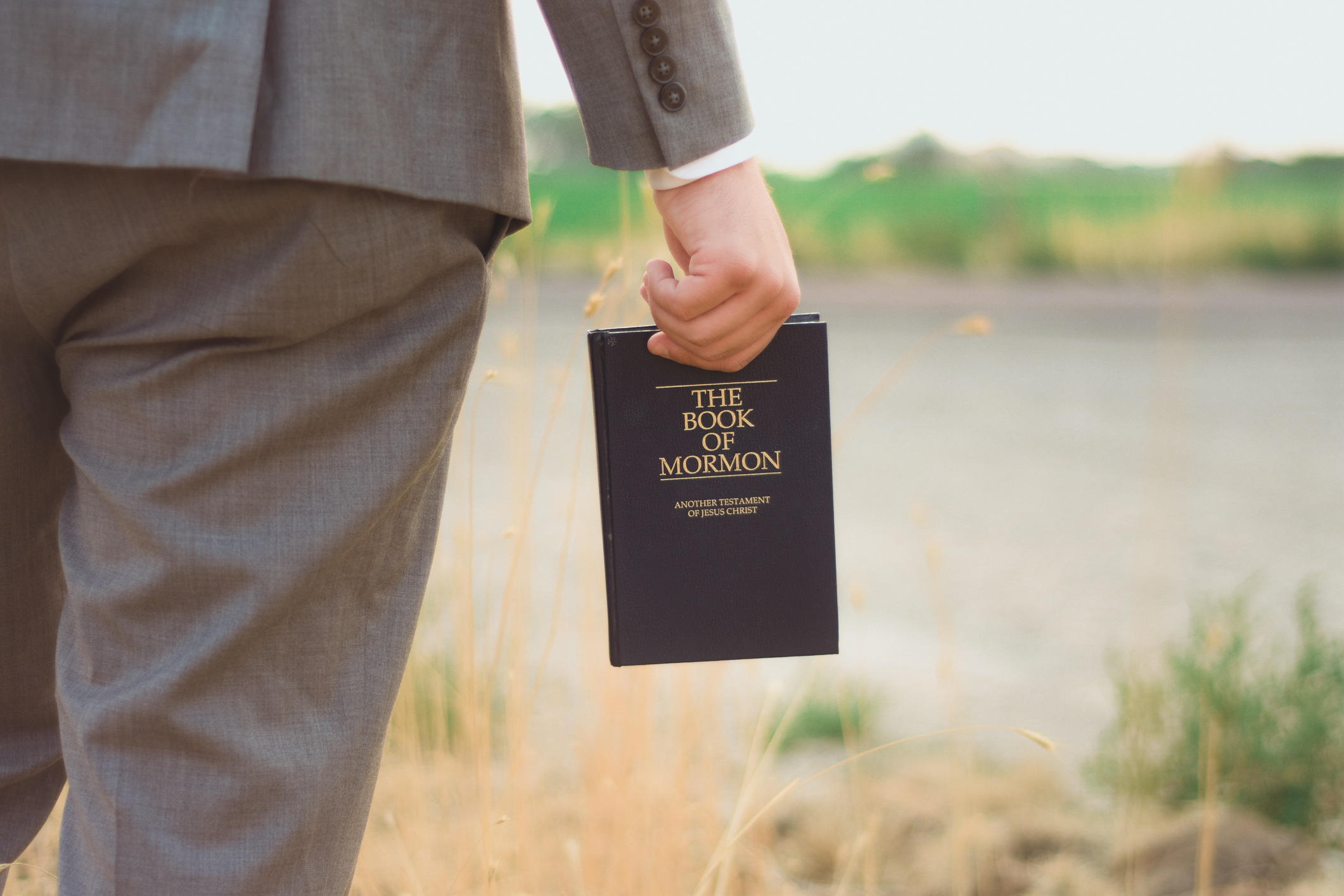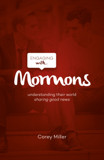
Christians are sometimes baffled after presenting what they take to be knock-down arguments against Mormonism, only to hear the Mormon double down about how they know it is true regardless, as if they are saying, “Never mind the facts; I’ve got a feeling.”
Although the prophets and scriptures are authoritative in Mormonism, it is usually the testimony that proves to be most influential on the average Mormon. People in the Mormon church, also known as LDS, aspire to “bear testimony” (that is, a personalized, deeply felt, public declaration). They deploy it in defense when cornered, or on offense to impact an investigator.
A selection of quotes from LDS writers might help you get your head around the Mormon understanding of the testimony. LDS apostle Boyd K. Packer said, “A testimony is to be found in the bearing of it. Somewhere in your quest for spiritual knowledge, there is that ‘leap of faith,’ as the philosophers call it.” Elsewhere, Packer reveals the nature of testimony: “Bear testimony of the things that you hope are true, as an act of faith.”
The Doctrines & Covenants 9:8-9, part of the Mormon holy books, describe the testimony as a “burning in the bosom,” which LDS apostle Dallin Oaks defined as “a feeling of comfort and serenity.” Another LDS leader encourages its use in evangelism: “Sincere feelings conveyed from heart to heart by means of testimony convert people to the truth where weak, wishy-washy, argumentative statements will not.” An official LDS Church manual proclaims, “In order to know that the Book of Mormon is true, a person must read, ponder, and pray about it. The honest seeker of truth will soon come to feel that the Book of Mormon is the word of God.” Another LDS apostle-turned-prophet even warned that the failure to bear testimony frequently may result in a loss of merit points toward the heavenly goal.
It seems as though the more expressively the testimony is told, the truer it becomes. Apparently, it is impenetrable to argument. It is that powerful!

An introduction to what Mormons believe and how Christians can reach out to them with the gospel.
Given the stranglehold that testimony has on Mormons, it’s important to undermine confidence in it in order to open new possibilities.
How do we do that? I find it helpful to use a “police lineup” illustration. In a police lineup, the suspect of a crime stands side-by-side along with several foils—people of similar height, build,
and complexion—facing the direction of the witness who is behind a one-way mirror. The witness must identify the real culprit in contrast to the mere look-a-likes, who are eliminated in the process.
Although Mormonism may look like a very uniform religion to the outsider, there are actually dozens and dozens of Mormon splinter groups. The Salt Lake City-based LDS Church is usually the one people think of when hearing the term “Mormon.” But it is not alone. Most Mormons know this, even if they are unaware of quite how many competing sects exist. Each one is fully loaded with their own prophets and apostles claiming to hold the true “Restoration,” which excludes all others. Furthermore, they all claim that they have received a testimony about the truthfulness of the Book of Mormon and their authorized and restored version of Mormonism, attended with great feelings of warmth and serenity.
On venturing in this direction, the Mormon may sense a familiarity with the LDS “origin story,” when the founder of Mormonism, Joseph Smith, went into the “Sacred Grove” to ask God which of the different Protestant churches to join. Many LDS missionaries will recount this story to people in their first missionary discussion. They often note that the multiplicity of church denominations existing today is confusing. So, they argue, we need modern revelation through a living prophet to guide us through the confusion.
The police lineup illustration turns the tables so that it is the Mormon who is in the “Grove,” so to speak, as we point out to them the diversity of their own movement and question the reliability of their testimonies. It is rhetorically powerful because we are using “Mormonese”— the language of experience—and subverting their misuse of testimony while preparing to use our own testimony properly. (A Christian’s testimony is likewise subjective but corresponds to the objective testimony of Scripture, which is historically reliable.)
Remember, the goal is to undermine our Mormon friend’s confidence in their subjective testimony so that every time they ponder bearing it going forward, with or without you present, they will be unable to feel confident given the residue of doubt. They will be more open to consider other things.
“I know that I have eternal life because I trust in Christ’s work alone, doing good works in grateful response to the salvation I have solely on the merits of Christ. I know this by the Spirit and the testimony of Scripture.”
If the conversation gets this far, a gospel presentation is in order. Aim to communicate the essentials about God (he is the Creator of everything, is holy and worthy of our worship); man (we are sinful, have rejected God’s authority, and are deserving of his wrath); Christ (he is fully God and fully man; he died on the cross to take the punishment his people deserve and rose again to offer us eternal life); and our response (to be saved we must repent of our sin and trust in Christ, and receive his free gift of forgiveness).
Having undermined my Mormon friend’s testimony and shared the gospel, I’ll then conclude by deploying my testimony and the most explicit statement in Scripture testing the legitimacy of a testimony, 1 John 5 v 9-13.
I then inquire, “Do you have this testimony? If you died today, do you know that you would experience eternal life with Heavenly Father? If not, is God a liar? I know that I have eternal life because I trust in Christ’s work alone, doing good works in grateful response to the salvation I have solely on the merits of Christ. I know this by the Spirit and the testimony of Scripture.
Mormonism does not offer the confidence that my testimony has, nor is it in harmony with God’s testimony. He says that whoever ‘has the Son’ can know that eternal life with their Heavenly Father is assured.” What a wonderful promise to hold on to and hold out to others!
This is an extract from Engaging With Mormons by Corey Miller. This book offers an introduction to what Mormons believe and how Christians can reach out to them with the gospel.